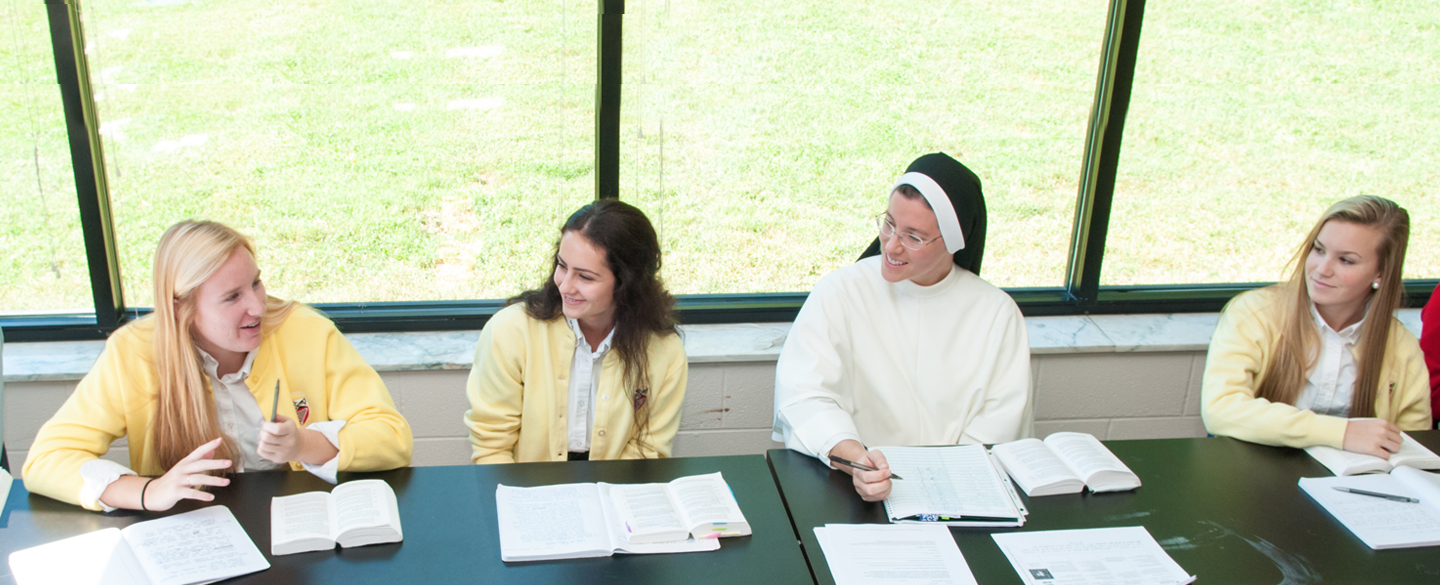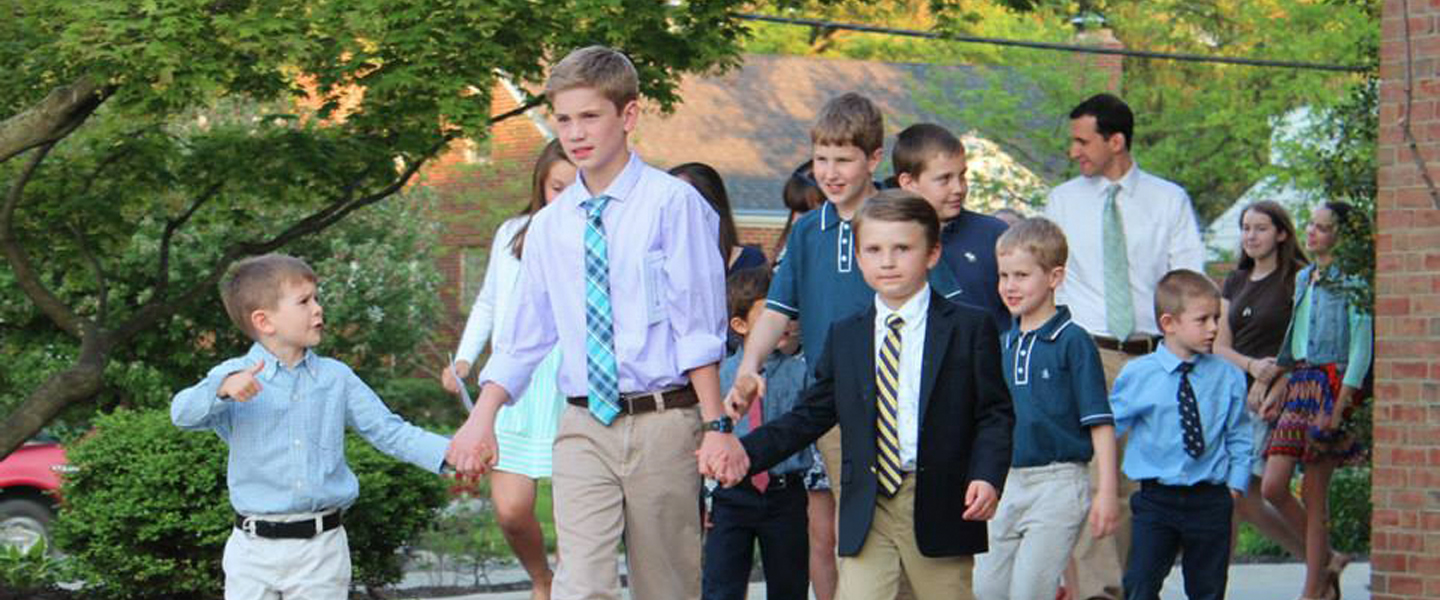
In our pastoral care we ask ourselves: How are we to reveal Jesus Christ, God made man, to this multitude of children and young people, reveal Him not just in the fascination of a first fleeting encounter but through an acquaintance, growing deeper and clearer daily, with Him, his message, the plan of God that He has revealed, the call He addresses to each person, and the kingdom that He wishes to establish in this world with the “little flock” of those who believe in Him, a kingdom that will be complete only in eternity? How are we to enable them to know the meaning, the importance, the fundamental requirements, the law of love, the promises and the hopes of this kingdom? (Catechesi Tradendae, 35)

As Dominican Sisters, we live the motto “to contemplate and to give to others the fruits of our contemplation.” We contemplate Truth—Veritas—and we share that same truth—veritas. The driving truth behind our work in the field of education is the principle of the dignity of the human person, the cornerstone of authentic education.
Offering the message of life in a culture of death is of critical importance if our apostolate of education is to be effective. We preach a message of reverence for human life at all stages, encompassing principles that are both personal and theological. Rooted in this understanding of the human person, we seek to teach and live these fundamental principles. The content we teach and the love with which we approach each of our students are necessarily integrated, in ways both big and small.
The source of this dignity is found in the mystery of God as Trinitarian love, in whose image we have been created. We teach this sense of dignity and the gift of self to our students by first striving to live it ourselves. We begin by the reverence and love that we show each other as religious sisters, forming a true religious family. We take this life of reverence to the classrooms and offices of our schools, showing our love for our students by treating them respectfully and teaching them to treat their fellow students respectfully in return.
The Constitutions of our Congregation remind us that we have a duty to teach the truths of the Catholic faith. We know that we must honestly answer the sincere, and often difficult, questions of our students. We must answer these questions according to the teachings of the Church, thus regarding the dignity of each student’s intellect with a sense of respect.
All life is sacred. Each person is a gift from the hands of the Father. Thus, the message of reverence for life begins in the classroom at the earliest ages, as a message of love and respect for all of one’s classmates. The opportunities to convey this lesson are many. “Teaching the children kindness is so important. This is where respect for life begins,” comments a sister who teaches second grade. “Not bullying others is the beginning, but I try to get the children to be considerate and to reach out to others, especially at lunch and recess, sensitive to those who may be left out, and asking others what they would like to do instead of just thinking about what I want to do. We have class meetings about what loving others really means.” The kindergarten students of one sister stand and greet every visitor by saying, “Good morning. God bless you.” Another kindergarten teacher taught her students to make eye contact with the student holding the door open and to say distinctly, “Thank you.”
Our sisters teaching older students consistently convey this message of life by emphasizing courtesy, kindness, and respect toward each other. “It’s all part of recognizing the dignity of the human person. Love is what we will be judged on in the end,” an eighth grade teacher remarks. “If we can’t love the people we are with everyday, how can we love people we don’t know yet? Once they see how to love the human person and how lovable the human person is, then we can talk more about the gift of life, and the human person in the beginning stages of life.” A sister who teaches high school students conveys that same message and finds it particularly effective to surround her students with images of new life. Her favorite images are those of a father holding his newborn child and Mary holding the baby Jesus. “Choose Life” is the motto on the bulletin board. This sisters observes, “The students learn the bigger picture of what choosing life everyday means—kindness, respect, and caring about each other.”
From appreciating the dignity of each person to specifically teaching life issues, our sisters teach others to value the gift of human life. Thus, a Dominican education strives through example, teaching and physical environment to give to students a sense of their immense dignity, to understand that life is a gift which must be upheld and respected at every stage.


 Back
Back